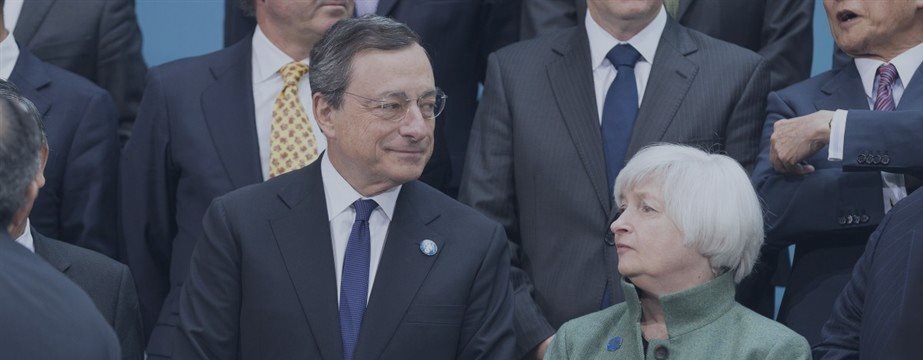
Warning from S&P: Monetary stances diverge in U.S., U.K. and developing economies; affect exchange rates
Ratings agency Standard & Poor’s has issued a caution that monetary policy is diverging, in both the United States and the United Kingdom, as well as developing economies.
In a report “European Monetary And Financial Roundup: Divergence Dominates Global Monetary Policies” the agency noted that diverging monetary policies in developed countries are influencing exchange rates and prospects for foreign capital flows to emerging markets.
The US is likely to raise interest rates in September, S&P says, followed by the Bank of England.
In contrast, the European
Central Bank and the Bank of Japan will have significantly eased their monetary stances.
China’s structural slowdown is pressuring global trade and commodity prices. Under the impact of these global forces, monetary policies in emerging economies are also moving in different directions.
S&P senior economist Tatiana Lysenko notes that different policies have implications for exchange rates in particular, with the U.S. dollar appreciating sharply against the currencies of its major trading partners.
“We think the euro-dollar rate will fall to about $1.07 by year-end and remain in this range in 2016 and 2017. Some of the strength in the dollar reflects safe-haven flows into the U.S. in a tumultuous economic and political environment and doubts about economic prospects in the rest of the world.”
The diverging stances of major central banks are also causing uncertainty regarding prospects for foreign capital flows
to emerging markets, the report says.
To date, private nonresident inflows to emerging markets dipped to about $1,000 billion in 2014 from $1,300 billion in 2013 and are likely to decline again to $980 billion in 2015 - their lowest level since 2009, according to calculations conducted by the International Institute of Finance.
Lysenko notes:
“Over the next 18 months, we expect tightening of monetary policy in Turkey and South Africa - the countries with large external deficits that are vulnerable to a reversal in global capital flows."
"In Latin America, we expect both Brazil and Mexico to tighten monetary policy, albeit for different reasons.”


